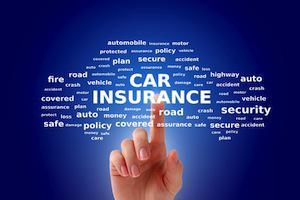
Your Wisconsin Auto Insurance Coverage
In the state of Wisconsin, you are required by law to carry liability insurance, uninsured motorist coverage, and underinsured motorist coverage on your vehicle. Liability pays for bodily injury or property damage caused if you are at fault in an accident. Uninsured and underinsured motorist helps to cover the cost of any injuries to you or your passengers in the event that you are in an accident caused by an uninsured motorist or a motorist whose insurance does not provide sufficient coverage.
Additional types of coverage can protect you in other ways. For example, collision coverage helps to pay for any damages to your vehicle after an accident, regardless of who is at fault. Comprehensive coverage will help cover any damages to your vehicle sustained during events not related to an automobile accident (fire, flood, etc.). Medical payments provide additional coverage for medical expenses sustained in a car accident. Finally, towing, labor, or rental reimbursement can help cover you if your vehicle is stranded roadside, or if your vehicle is being repaired.
All of these types of coverage are considered extra, and you must specifically request them from your carrier. If your vehicle is leased, you may be required to carry insurance by your lender. If, however, you do not owe on your vehicle, the decision is entirely up to you. Just be certain to weigh the cost of coverage against the cost of not having coverage, should an accident occur.
The minimal limits in Wisconsin for liability, uninsured and uninsured coverages are often nowhere near adequate for even the most minor of accidents. With most companies, the cost of increasing coverages is far less expensive than most people think.
It should also be noted that your auto insurance will not cover theft of personal property or damage to personal property, even if it is damaged during an accident. Instead, you must look to either homeowner's insurance, renter's insurance, or other forms of insurance to have these items replaced (i.e. cell phone insurance).
What to Do After an Accident
While it is important to contact and notify your insurance company of an accident, it is highly advised that you avoid making any settlements with your insurance carrier until you have been examined by a physician and consulted with an attorney. This is especially true if there are any serious injuries, including those that result in fatality since, unbeknownst to many drivers, insurance companies often attempt to reduce compensation through blame and minimization of any injuries sustained.
Dedicated to helping victims of automobile accidents recover fair compensation for their injuries, the Appleton auto crash attorneys and Green Bay auto crash attorneys of [[title]] can help. Skilled and experienced, we offer personalized and comprehensive legal representation during insurance disputes, matters involving vehicle or property damage, and accidents that result in medical costs and/or pain and suffering. To find out more, call 920-739-7366 and schedule your initial consultation today.
Sources:
http://www.nwitimes.com/business/transportation/driving-a-red-car-will-not-drive-up-a-motorist/article_4f4a9661-e5e3-5d67-a7a6-23968ce2f249.html
http://www.dmv.org/wi-wisconsin/car-insurance.php


